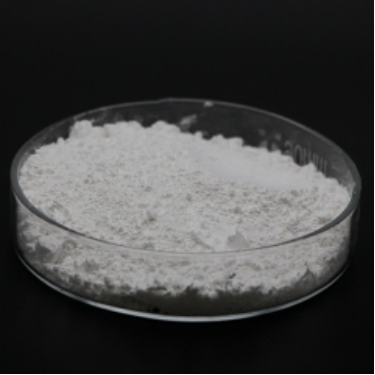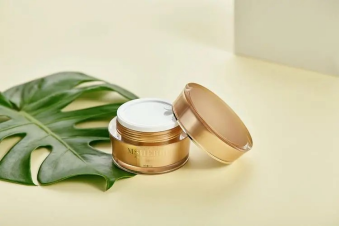Overview of Hexadecyl Pyridinium Chloride
Hexadecyl Pyridinium Chloride, also known as pyridine chloride, the chemical formula is C21H38ClN, has the characteristics of rich and fine foam, low degreasing power, low irritation to skin and hair, and good biodegradability, and so on. It is a quaternary ammonium salt cationic surfactant and a widely used disinfectant. The product is non-toxic, can be ingested by mouth, and has no irritation to skin and mucous membranes.

Hexadecyl Pyridinium Chloride
Features of Hexadecyl Pyridinium Chloride
Physical properties: Cetylpyridinium chloride is a white or yellowish solid powder often containing a crystalline water molecule. Its melting point is about 77-83 ° C. The substance dissolves easily in ethanol, water, and chloroform but hardly in ether.
Chemical property: Cetylpyridinium chloride is a quaternary ammonium cationic Surfactant with good surface activity. At the same time, it is also an effective disinfectant to a variety of bacteria and viruses that have a killing effect.
Stability: This substance is stable at room temperature but flammable and incompatible with strong oxidizers and alkalis.
Safety: Cetylpyridine chloride is considered to be a moderately toxic substance with a 50% lethal dose (LD)(rat, Oral) of 200 mg/kg. In addition, it is irritating and, therefore, requires proper precautions in operation and use.
Technical Parameter of Hexadecyl Pyridinium Chloride
Product Name | Short Name | Effective substance content | PH | Odor | Appearance |
Hexadecyl Pyridinium chloride | N/A | NA | NA | Slight characteristic odor | white powder |
Advantages of Hexadecyl Pyridinium Chloride
Good surface activity and sterilization: Cetylpyridinium chloride can effectively reduce surface tension with good wetting, emulsifying, dispersing, and solubilizing properties. At the same time, it is also a highly effective disinfectant, which kills various bacteria and viruses, so it is widely used in oral care products, water treatment systems, and other fields.
Mild and non-irritating to skin and mucosa: Cetylpyridinium chloride is mild and non-irritating to skin and mucosa. It can be safely used in oral cleaning care products without causing oral discomfort or allergic reactions.
Wide application range: Cetylpyridinium chloride can be used not only for oral cleaning care products but also for water treatment systems, pharmaceuticals, cosmetics, personal care products, sanitary products, and other fields; it shows its extensive application prospects.
Advantages of purified hyaluronic acid: Cetylpyridinium chloride (CPC) can also be used to purify hyaluronic acid, with the mucopolysaccharide molecules in the formation of polyanions complex, the complex in low concentration of salt solution precipitation, and gradually dissociate in a high concentration of salt solution. With this property, the purification of hyaluronic acid can be achieved. This purification method is easy to operate, but CPC is difficult to recover. The unit price is higher, so the application cost is higher.
Application of Hexadecyl Pyridinium Chloride
Hexadecyl Pyridinium Chloride have been widely used in many fields, including but not limited to the following aspects:


Applications of Hexadecyl Pyridinium Chloride
For oral hygiene and care: Cetearyl chloride is the most widely used antibacterial and antifungal ingredient. It is widely used in toothpaste, mouthwash, gargling, breath freshener, and other products. In addition, it is also used in topical anti-infection products to neutralize medicinal preservatives, such as nasal sprays.
Used in water treatment systems: Cecalin can be used for industrial water treatment systems of sterilization algae, slime peeling, and system cleaning. In the process, the general use of a concentration of 20~80mg/L.
Other fields: Hexadecyl Pyridine Chloride can also be used in medicine, cosmetics, personal care products, hygiene products, and other fields.

NANOTRUN(www.rboschco.com) is a trusted global chemical material supplier & manufacturer with over 12-year-experience in providing super high-quality chemicals and nanomaterials, including boride powder, nitride powder, graphite powder, sulfide powder, 3D printing powder, etc.
The company has a professional technical department and Quality Supervision Department, a well-equipped laboratory, and equipped with advanced testing equipment and after-sales customer service center.
If you are looking for high-quality Hexadecyl Pyridinium Chloride, please feel free to contact us or click on the needed products to send an inquiry.
L/C, T/T, Western Union, Paypal, Credit Card etc.

Shipment Term
By sea, by air, by express, as customers request.
Storage Conditions
1) Store in a dry environment at room temperature.
2) Avoid damp and high temperature.
3) Use immediately after opening the inner packing bag.
Q1
What are the main uses of cetylpyridinium chloride?
Answer: Cetylpyridinium chloride is a nitrogen-containing cationic Surfactant used primarily as a disinfectant. It kills more heterotrophic, iron, and Sulfate-reducing bacteria than other commonly used quaternary ammonium salt fungicides. Therefore, it is widely used in sterilization and algae-killing, slime stripping, and system cleaning of industrial water treatment systems. In addition, it is also used in oral hygiene care supplies, medicine, cosmetics, personal care supplies, hygiene supplies, and other fields.
Q2
What are the advantages of cetylpyridinium chloride?
Answer: The advantages of cetylpyridinium chloride include good surface activity and sterilization, mild and non-irritating to skin and mucosa, and a wide range of applications. In addition, it can also be used to purify hyaluronic acid, a simple operation but high cost.
Q3
What should cetylpyridinium chloride pay attention to when configuring the solution?
Answer: In the configuration of the Cetylpyridinium Chloride solution, we need to pay attention to the quality of accurate, uniform mixing as far as possible to avoid the problem of incomplete dissolution. If it does not dissolve, you can try to use temperature adjustment methods, add cosolvent, or change the concentration of methods to solve the problem.
Q4
What is the safety and stability of cetylpyridinium chloride?
Answer: Cetylpyridinium chloride is considered a medium toxic substance, irritating, so use caution when safe. At the same time, it is flammable and incompatible with strong oxidants and strong alkalis, need to pay attention to storage and use conditions. In addition, in the use of the process also need to pay attention to avoid foaming, association, and interaction with other substances to ensure the stability of the product and the use of results.
Q5
Is cetylpyridinium chloride safe?
Answer: Cetylpyridinium chloride is safe in moderate doses, but overuse or improper use may cause irritating reactions. It is a medium toxic substance and should follow safe operating procedures to avoid prolonged contact with the skin and inhalation of its vapors.
Q6
How is cetylpyridine chloride stored and stabilized?
Answer: Cetylpyridinium chloride should be stored in a dry, cool, ventilated place. Avoid direct sunlight and high temperatures. Since it is flammable and incompatible with strong oxidizers and alkalis, contact with these substances should be avoided. In addition, avoid prolonged exposure to air or moisture to maintain stability.
Hexadecyl Pyridinium chloride Properties | |
| Other Names | N/A |
| CAS No. | 123-03-5 |
| Compound Formula | C21H38ClN·H2O |
| Molecular Weight | 358.01 |
| Appearance | NA |
| Melting Point | N/A |
| Boiling Point | N/A |
| Density | N/A |
| Solubility in H2O | N/A |
| Exact Mass | N/A |
PTSA P-Toluene Sulfonic Acid Health & Safety Information | |
| Signal Word | N/A |
| Hazard Statements | N/A |
| Hazard Codes | N/A |
| Risk Codes | N/A |
| Safety Statements | N/A |
| Transport Information | N/A |




